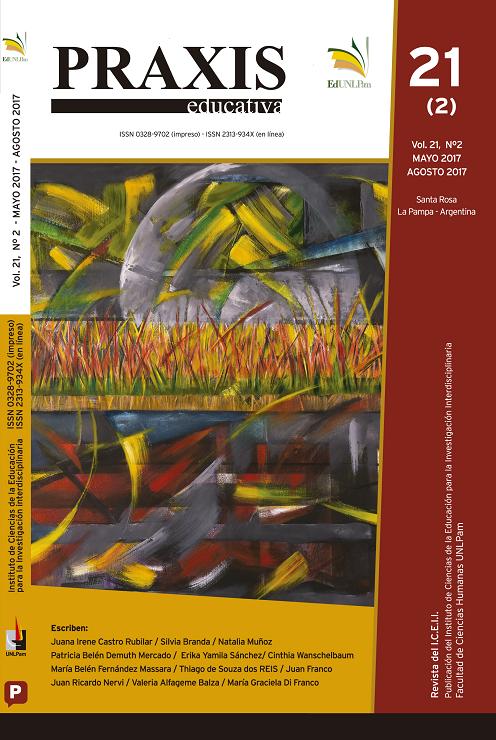Initial teacher’s training in Chile, a piece of the history and the competency-based learning challenges.
DOI:
https://doi.org/10.19137/praxiseducativa-2017-210202Keywords:
Initial teacher training, teaching culture, competency-based learning, competency-based training, traditional pedagogy.Abstract
The initial teacher training of elementary school teachers in Chile, which has its origins in “the normal schools” and the University of Chile, is currently influenced by new paradigms arising from the emergence of neoliberalism in the 80s. The impact of that model in the educational curriculum is the introduction of standards and indicators as parameters for the accreditation of teaching programs and the demands imposed by the model of competencybased training. In this scenario, one can reflect on the challenge that arises from such training, particularly on the impact of that model for the new generations of teachers, which implies the training of ideally competent professionals, moving from the training capacity based on cultural and scientific facts to the academic development of the modern professional.
Downloads
Downloads
Published
Issue
Section
License
Copyright Notice
Editorial Committee Educational Praxis Magazine:
I hereby declare that I am the author of the article titled (article name), that it is original and my own and that it was not previously published in any other format or medium. I declare to know that the magazine will not charge me any type of fee under any circumstances, nor will I receive any type of monetary compensation If it were accepted for publication in Educational Praxis, I authorize the aforementioned magazine to publish it digitally and to advertise it on its social networks.
If the work is published, I adhere to the Creative Commons license called "Attribution - Non-Commercial Share Alike CC BY-NC-SA", through which it is allowed to copy, reproduce, distribute, publicly communicate the work and generate derivative works, as long as when the original author is cited and acknowledged. This license has been used since September 2018. In 2016 CC BY NC ND 4.0 was adhered to; and in the years 2017 and 2018 (January-August) CC BY NC 4.0.
This CC BY-NC-SA Share Alike license does not, however, permit commercial use of the work. As an author, the journal may establish additional agreements for the non-exclusive distribution of the version of the work published in the journal, it allows me to self-archive the published articles, in their post-print version, in institutional, thematic repositories, personal web pages or any other relevant use. with the recognition of having been first published in this journal.
Educational Praxis adheres to DORA (Declaration on Research Assessment) signed in San Francisco, California, on December 16, 2012, and to the Declaration of Mexico (Joint Declaration LATINDEX - REDALYC - CLACSO - IBICT).















_(1)2.png)


3.png)











_(2).png)






2.jpg)









